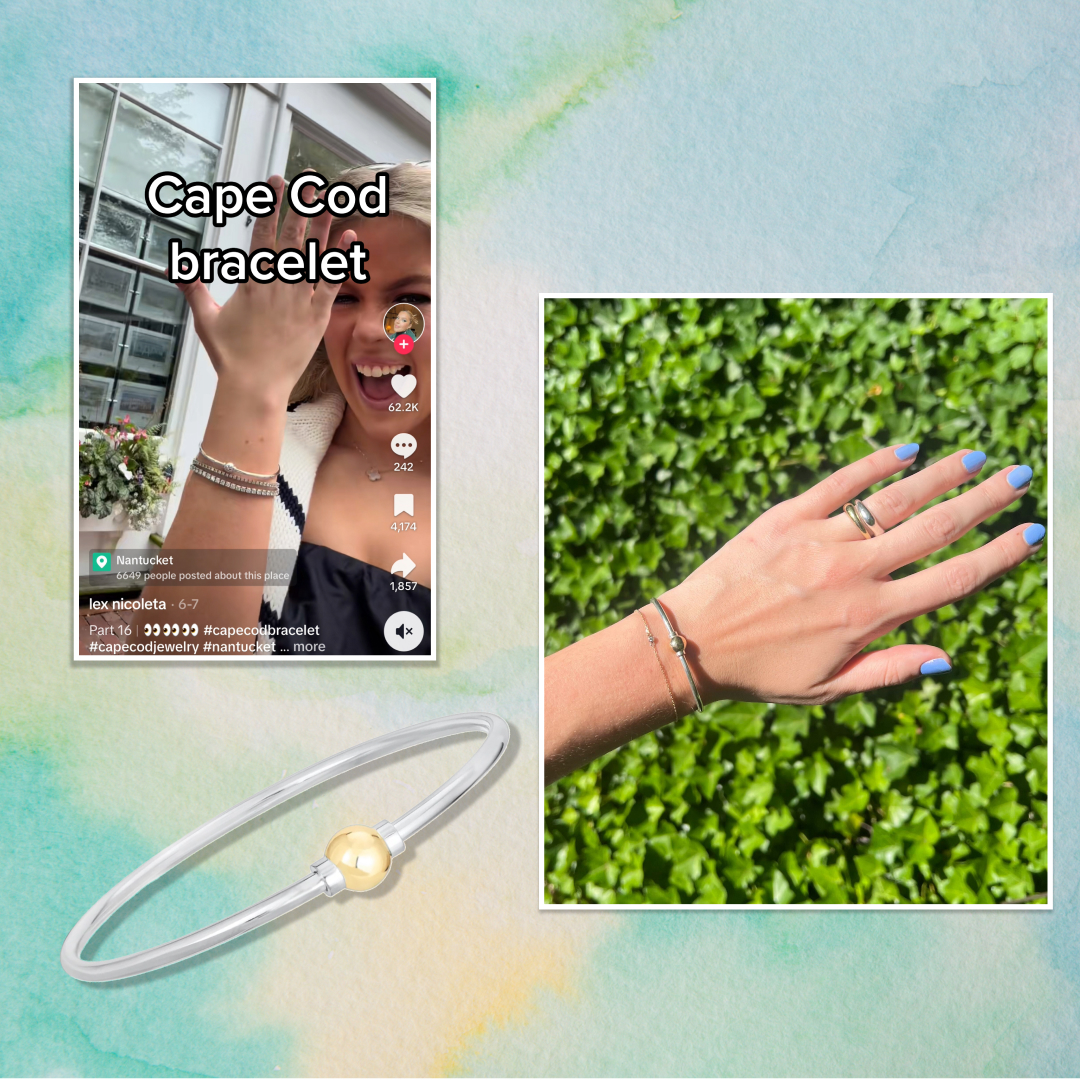
“Cape Cod bracelets are all over my TikTok For Your Page,” Halie LeSavage, Marie Claire’s senior fashion and beauty news editor, told me in a recent team meeting. It was a sentence I never could have imagined hearing—especially in our midtown Manhattan office, set to a chorus of honking taxi cabs—and 250 miles from the Massachusetts peninsula where I grew up.
I received my first Cape Cod bracelet—a thin silver band held together by a gold screwball clasp—when I was three. It was a gift from my grandmother, who raised my mother on the Cape and lived there year-round. The bracelet remained on my wrist for the entirety of my sun-soaked childhood. When I inevitably outgrew it, my mom repurposed the tiny child-size bracelet into a keyring she still uses today.
I never got another Cape Cod screwball bracelet; it felt like an adolescent treasure I didn’t want to tarnish, and its coastal connotations didn't really match the vibe of my Manhattan-based adulthood. Until this summer, I was also under the assumption that people outside New England didn’t know what they were, and I was content to have the bracelets exist in my hometown bubble—until that bubble burst.
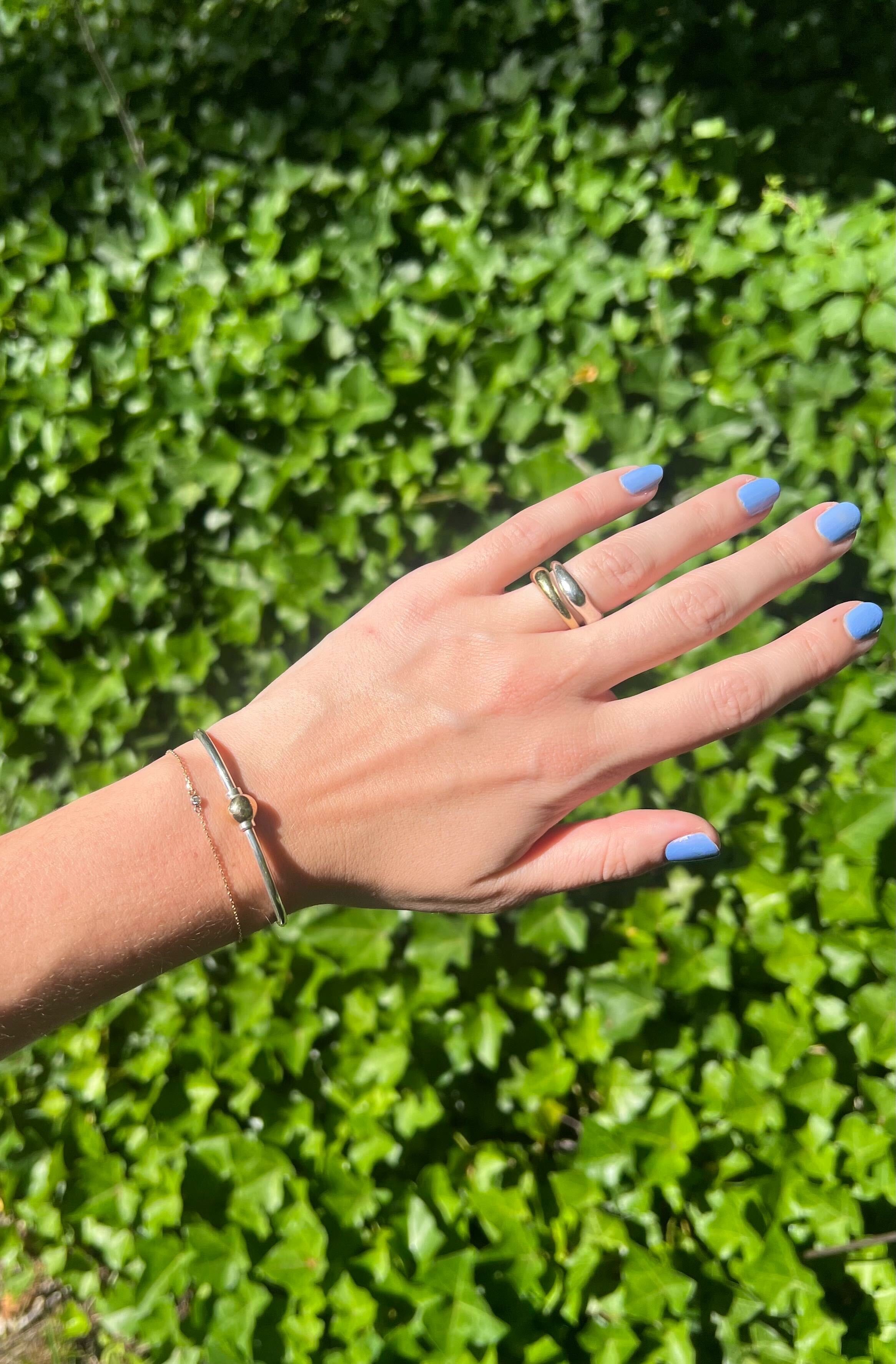
As Victoria Aveyard, an author and born-and-raised Massachusetts native, summarized in a June TikTok that’s racked up just under two million views: “Not only is [the Cape Cod bracelet] back, [but] it has left containment: it’s not only in the awareness of the New England girlies.”
When I tapped over to TikTok, I saw Lex Nicoleta, the originator of the coastal grandmother trend, taking her 350,000 followers on a Nantucket shopping expedition to buy a silver-and-gold screwball bracelet. Then, I discovered clips of women who had “never set foot on the East Coast” but had $35 Amazon dupes of the in-demand style. TikTok had officially core-ified it.
@lexnicoleta ♬ original sound - lex nicoleta
But, like many of the pieces the platform fixates on, the context surrounding the coastal classic was missing. The most glaring—which many commenters and other users pointed out—was that a truly authentic Cape Cod screwball bracelet can only be purchased from a small, family-run boutique called Eden Hand Arts located in Dennis, Massachusetts (the mid-bicep of the Cape for those using their arm as a map).
The bracelet’s origin story is fittingly wholesome: In the 1960s, Eden’s then-owner, John Carey, was perplexed at how his wife and business partner, Eve, kept losing her jewelry. As a solution, he designed the now-signature 14-karat gold clasp screwball bracelet, which, unless the wearer continually twists, won’t ever fall off. The design is Eden’s registered trademark, and you’ll know a Cape Cod bracelet is legitimate because of the signature apple-shaped tag that hangs on a hoop. Bracelets produced and sold by any other boutiques or brands are knock-offs or "dupes".
@victoriaaveyard big news out of the jewelry scene
♬ original sound - Victoria Aveyard
TikTok’s discovery of the Cape Cod screwball bracelet is not its first mainstream moment. During the late ‘90s, actress Amy Jo Johnson, a local Cape Coder, wore her screwball bracelet on the dramedy Felicity, inspiring a surge in popularity. (In an incredibly classic Cape twist, my dad grew up across the street from Johnson and remembers playing with her in his front yard.) Another peak hit in 2010 when a Dennis-born contestant on season six of The Bachelorette, Chris Lambton, gifted a silver-and-gold screwball to the season’s star, Ali Fedotowsky. (Lambton didn’t win Fedotowsky’s heart but came in second place).
But a key detail about Eden Hand Arts is that, at its heart, they're the antithesis of what it means to go viral. They are instead notoriously, almost ridiculously exclusive, and the store shies away from the spotlight.
Eden only accepts cash or checks (bracelets start at around $250 and increase depending on size and style), and they have little to no internet presence. They're almost impossible to get ahold of (Eden left my two voicemails and three emails unanswered). After The Bachelorette boom, Rachel Carey Harper, the store’s current owner and daughter of John and Eve, told the Boston Herald, “We have more business than we can handle. This just makes our life much more complicated.” Now, customers are required to book tickets online in advance to visit—but even then, it’s not a guarantee you’ll walk away with a piece because all jewelry is made by hand in limited quantities and custom-fitted to each wrist.
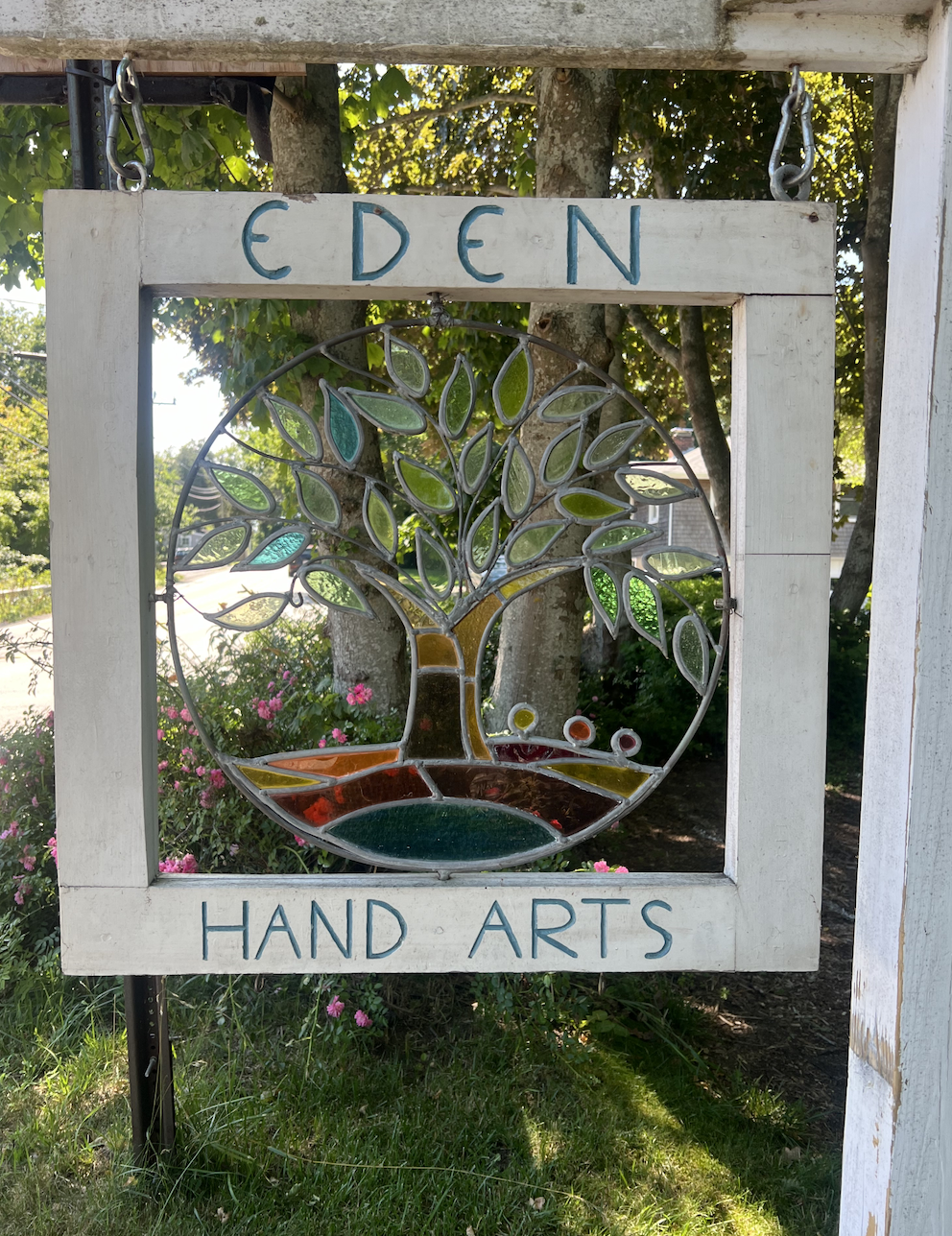
“But the exclusivity is part of the fun,“ notes my older sister, who recently texted me saying,"[Going to Eden] is like trying to get Taylor Swift Eras Tour tickets." The whole process—procuring a ticket, waiting in the Dennis boutique's typically long lines, and then hopefully walking away with a classic silver-and-gold screwball bracelet—has sentimental value to us locals. A family friend who owns five bracelets estimates she’s visited Eden Hand Arts at least 15 times, starting when she was a young teenager. It’s a rite of passage, as any local Cape Codder or visitor worth their salt will tell you.
But amidst the new wave of Cape Cod bracelet converts, I realized that I needed to take another trip to Eden to replace the childhood version that holds my mom’s house keys.
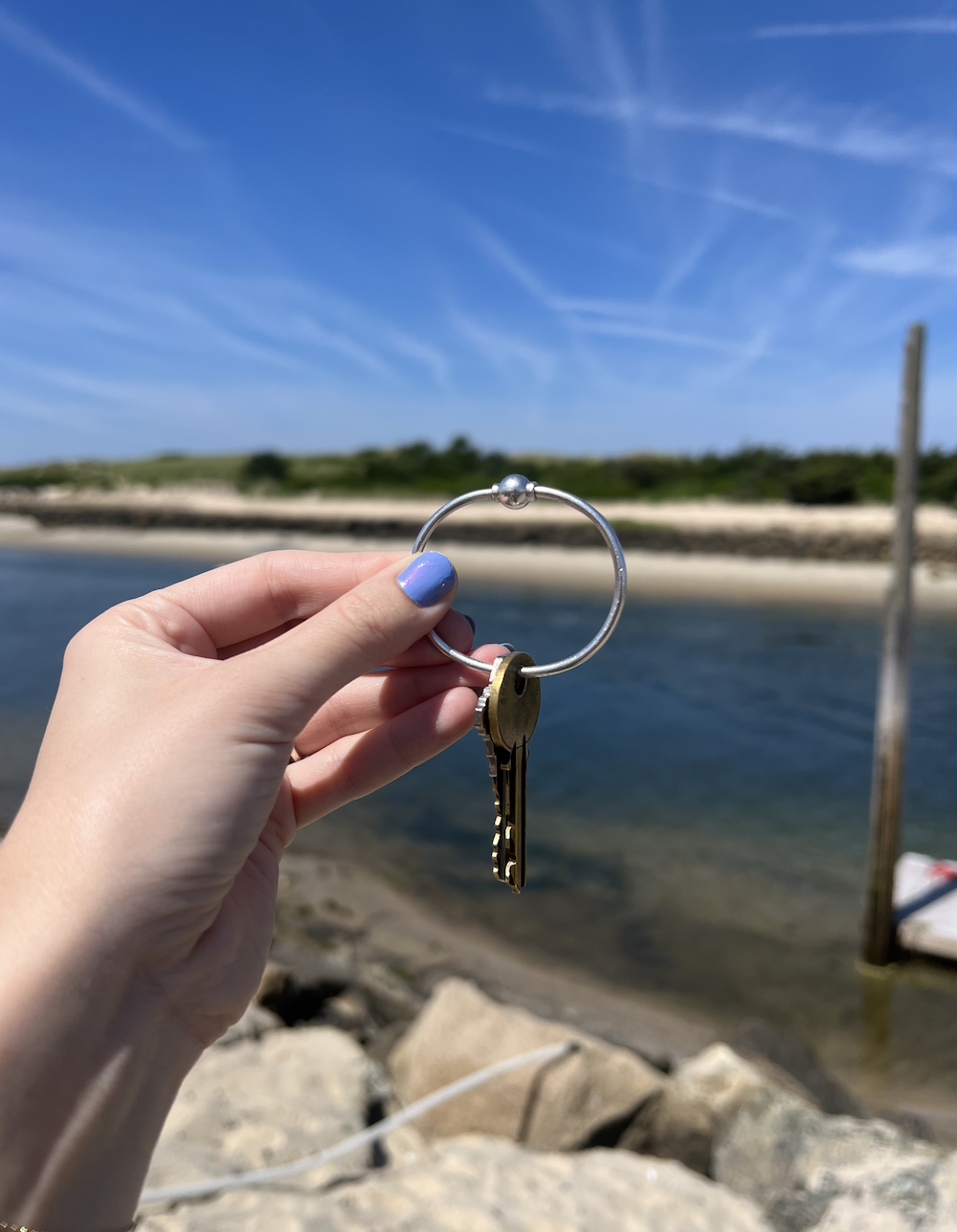
My sister snagged tickets for my mother and me in early July. “Getting them was like trying to steal the Declaration of Independence,” she reported of her experience, which involved setting four alarms in 30-minute intervals starting at 6:30 a.m. After fueling up on lobster rolls, the three of us arrived for our designated time slot at Eden. Nervously waiting in line, watching a family of four almost get turned away due to a technical malfunction with their tickets, we were eventually ushered in.
We asked for three classic silver-and-gold screwball bracelets, and the smiling sales attendant, Emily, obliged without qualms. She confirmed that “a lot more younger women are coming to Eden this year with all the Instagram and TikTok stuff,” but the store upholds its traditional insular protocol. Much to the chagrin of content creators, phones and cameras are still not allowed inside the store. Eden hasn’t let its newfound social media stardom influence its business.
As she screwed a shining silver band onto my wrist, my mom pulled out her bracelet-turned-key ring to compare my old with the new. Emily shared that she did the same with the Eden bracelet she received at age four, later re-gifting it to her niece on her 16th birthday to go with her newly obtained set of car keys. I left the store feeling a newfound bond.
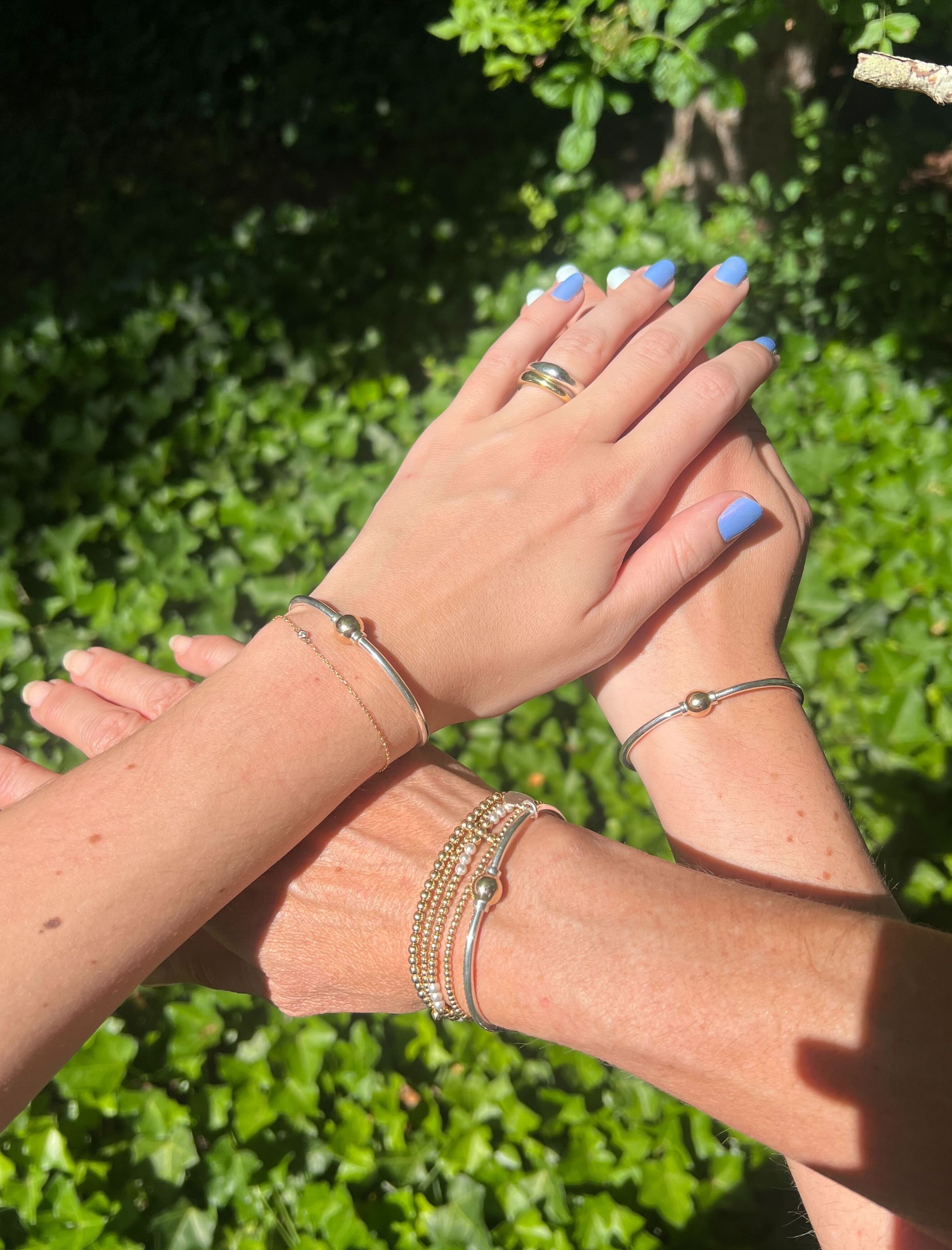
Nicoleta, the mother to all coastal grandmothers, feels similarly after purchasing her first. “I love that this bracelet has created a sisterhood of women from the East Coast who all have different stories about their own bracelets,” she says over email. “Under my video, I was getting comments like, ‘I haven’t taken mine off for 20 years.’” Native Cape Cod residents, seasonal tourists, and newbies who discovered the style on TikTok are all connected by the same silver strand and golden screwball—members of this Cape Cod Bracelet Club.
Even though the seaside signature doesn't exactly mesh with my current Manhattanite wardrobe, I don't foresee ever taking my new bracelet off. It's a little piece of the Cape to keep with me at all times. Walking down a soot-covered New York City sidewalk or waiting on a crowded subway platform for a train that might never come—one look down at my wrist, and I'm temporarily transported back home, feeling the sunshine on my shoulders and sea breeze on my face.
Shop Similar Cape Cod Bracelets
I can't in good conscious include off-brand Cape Cod bracelets for you to shop. But what I can do is round up similar silver, gold, and mixed-metal styles to tide you over until you're able to swing by Eden in person.







